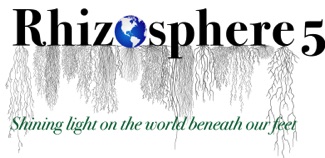Deadline for Abstract Submission
February 1, 2019 11:59:00 PM Pacific Daylight Time (US & Canada)
Note: The equivalent local time is shown in the accompanying World Clock:
Notification of acceptance for an oral presentation will be made by email on
February 8, 2019
Abstract Submission
Welcome to the Rhizosphere 5 website.
Abstract submission for the 2019 conference will open September 4, 2018.
The Science Advisory Committee will review all abstracts, taking into consideration the author's preferred choice of presentation type.
Abstracts will be accepted for oral, poster or poster pitch presentation. The Advisory Committee reserves the right to decide on the final form of presentation, which implies that the final assignment to an oral or a poster presentation might not be consistent with the expressed preference of the submitter. While we make an effort to consider the preferred presenation type this can - especially for oral presentations - not be guaranteed.
Current Weather
Social Media
Follow us on Twitter and Facebook
Host Organizations

For more information, or to be a sponsor, contact:
Instructions
Abstracts must be submitted by February 1, 2019 and must adhere to the following set of instructions:
• Abstracts must be submitted in English.
• Abstracts must not contain abbreviations or references.
• Abstracts must not exceed 300 words.
• The abstract title must be in lower case letters.
• After reviewing the list of theme areas, select one (1) theme under which your abstract
will be reviewed by the Scientific Advisory Committee.
Rhizosphere 5 Theme Areas:
• The root microbiome
• Plant holobiont
• Root imaging & phenotyping
• Rhizosphere processes for sustainable agriculture & nutrient cycling
• Natural (forest and grassland) ecosystem rhizosphere
• Rhizosphere of extreme environments
• Rhizoremediation
• Evolution in the rhizosphere (domestification)
• Plant mutualisms or symbionts, natural & commercial inoculants
• Climate change, abiotic stress and the rhizosphere
• Rhizosphere modelling
• Cutting edge approaches and methods
Abstracts that do not strictly adhere to the instructions will not be considered for presentation.


